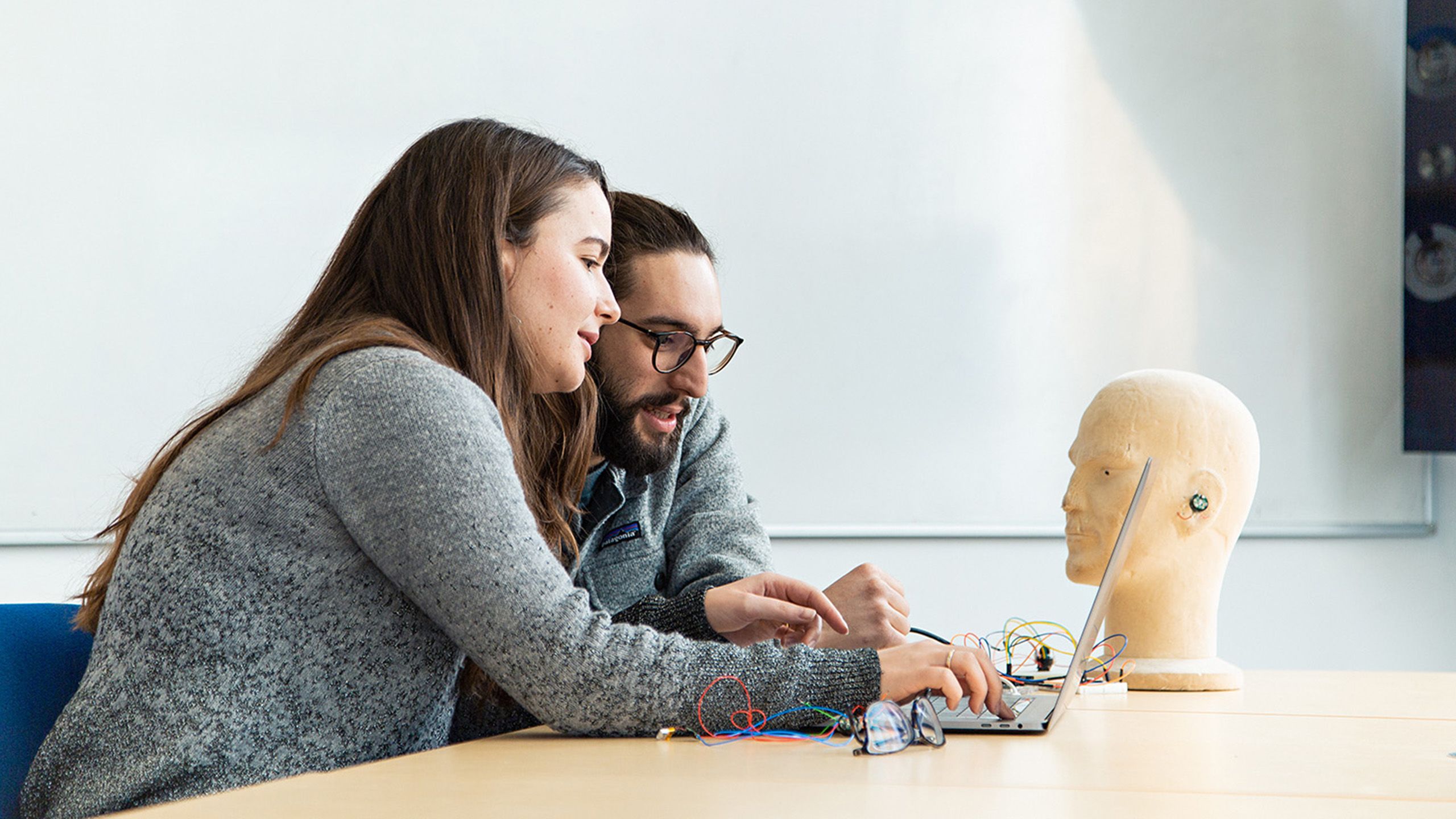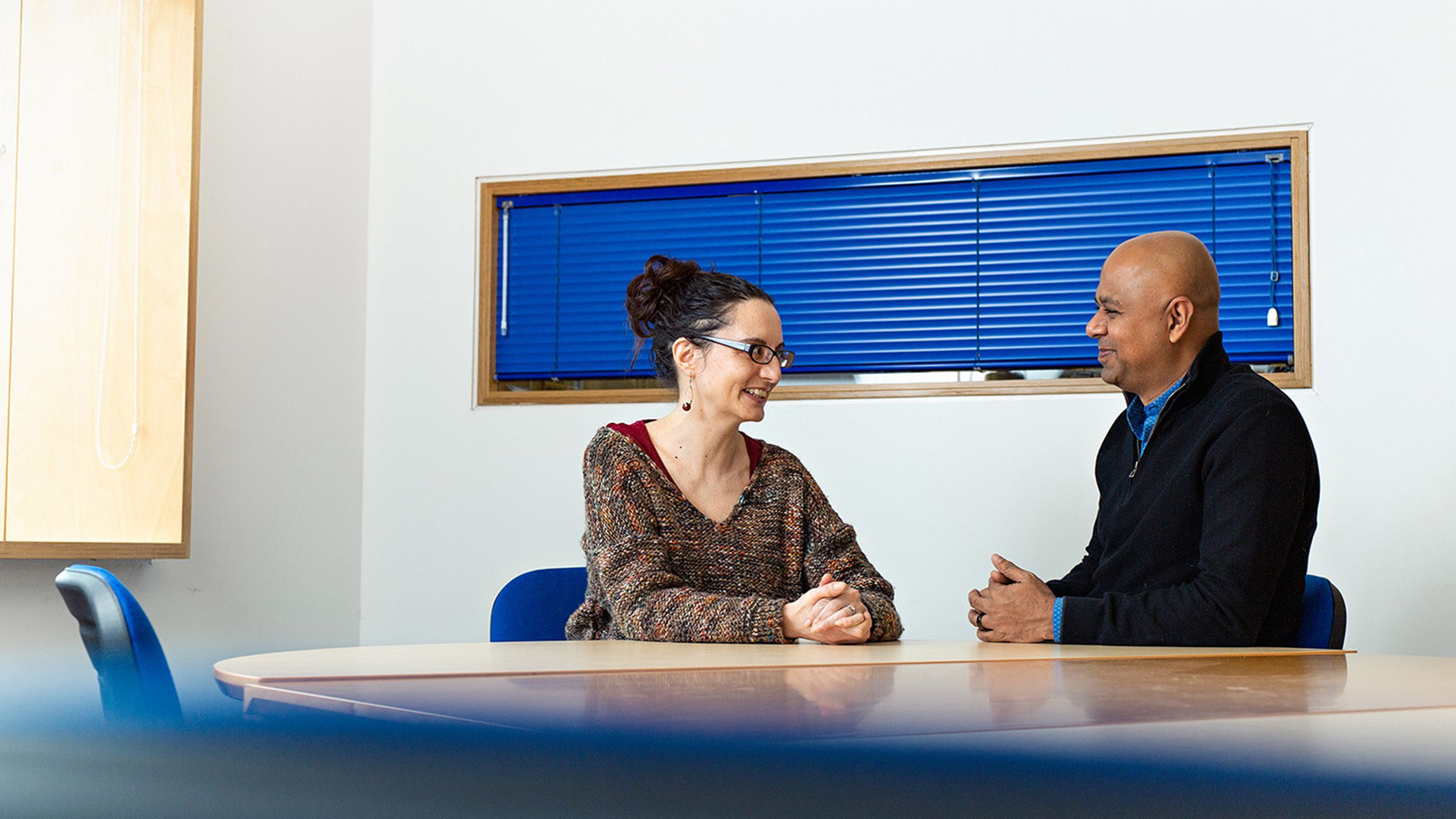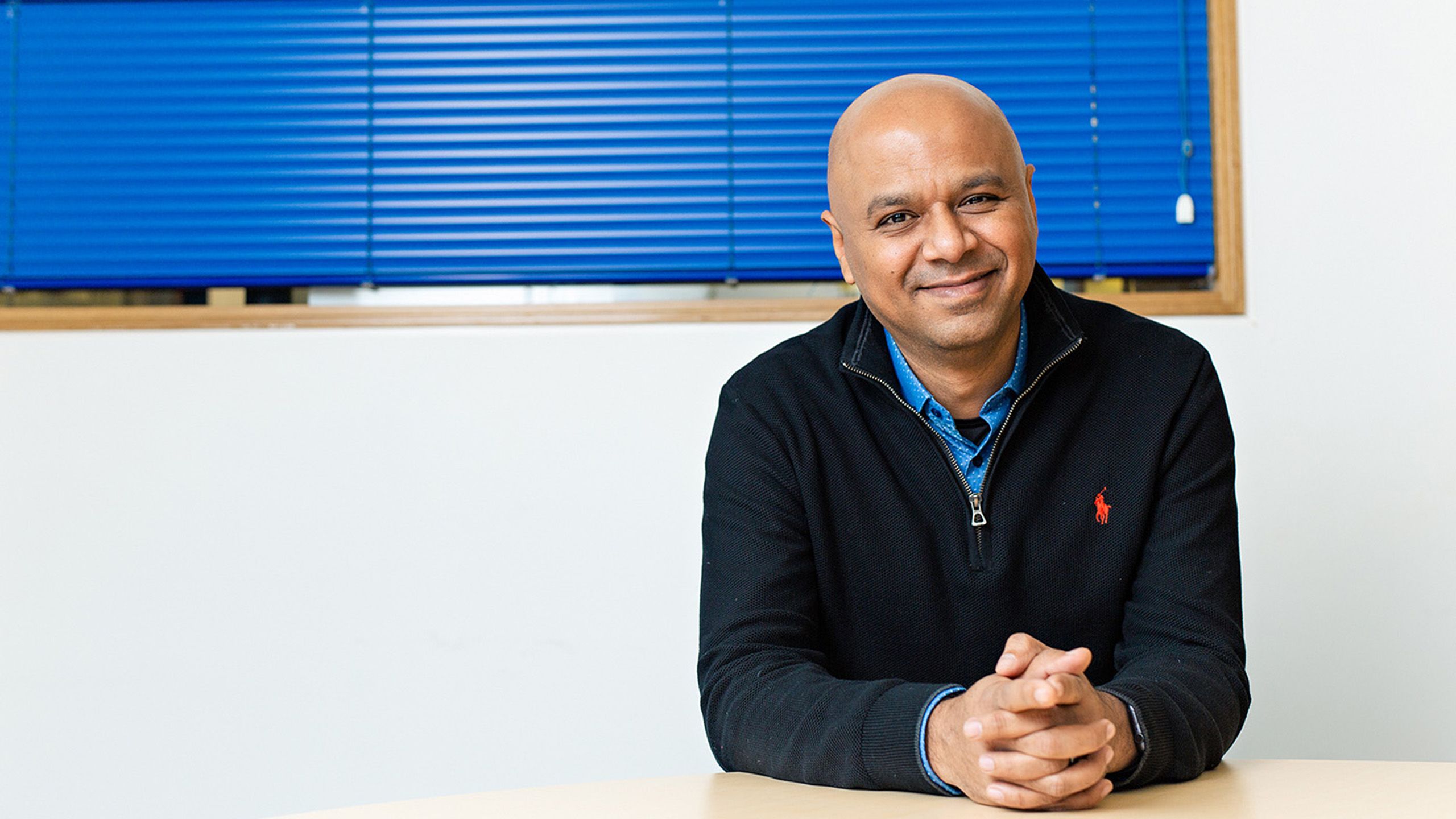On The Move
How this department is working with Nokia Bell Labs on next-generation mobile technologies.

Many of us spend more and more time plugged into our headphones. But what if those little pieces of plastic could be doing more than streaming music into our ears? What if they could be also be making us healthier and happier?
This is just one of the fascinating mobile computing projects being worked on in this department, thanks to a generous donation from Nokia Bell Labs to the University of Cambridge.
A new generation of devices worn in the ears – known as 'earables' – is being explored in the belief that such technology has the potential to transform our mental and physical health.
"In the future, we see 'earables' supporting people with things like interaction disabilities, memory impairment or mental health issues as well as being used to diagnose and monitor disease and infections,” says Professor Cecilia Mascolo, Professor of Mobile Systems here.
For Nokia Bell Labs, the potential is so great that after originally developing a new platform for 'earable' technologies, it opened up both platform and the prototype to promote rapid innovation.
The University of Cambridge was an early adopter and is now one of around 70 universities working on the platform, focusing on the data side of things: how to process and understand the information coming out of the earables and how to make mobile computing systems more efficient and - critically - more secure.
And earables are just one aspect of the collaboration between Nokia Bell Labs and the University. Another is the Centre for Mobile, Wearable Systems and Augmented Intelligence which was established here in the department in 2018. Jointly led by Cecilia Mascolo and Professor Alastair Beresford, its broad aim is to harness advances in mobile systems, security, new materials and AI to underpin a new generation of technologies with a whole host of applications.

The team believes that devices worn in the ear, on our wrists or incorporated into our clothing are certain to play an important part in the healthcare delivery of the future. For example, wearable consumer tech could have a key role in detecting - and therefore helping to manage - certain types of compulsive behaviours such as nail-biting, skin-picking, fidgeting and hair-pulling. But there's still a huge amount of work to be done on the 'building blocks' before these technologies become part of our everyday lives.
So researchers at the Centre are working in a number of different areas, from exploring how to combine inputs from multiple sensors to gaining a better understanding of how people interact with these new devices.
And of course, these devices will only work if their security - and their users' privacy - can be guaranteed. Alastair Beresford is Professor of Computer Security here. He has research interests in the security and privacy of networked mobile devices, including both the security of the devices themselves, and the security and privacy problems induced by the interaction between mobile devices and cloud-based Internet services.
His interest in this area, therefore, is mission critical and is already having a significant impact. His team recently identified a key vulnerability in smartphones which the manufacturer has now taken steps to address.
Roots of the collaboration

Back in 2015, when the world-famous network of Bell Labs was acquired by Nokia (from Alcatel Lucent), it had a very strong foothold in the US and Europe but no UK presence. Dr Fahim Kawsar, Founding Director of Pervasive Systems Research at Nokia Bell Labs in Cambridge saw this as a gap which, at his instigation, the company sought to rectify.
By 2016, Nokia Bell Labs had set up an office on the West Cambridge campus to focus on three core areas: materials, systems and data science. Cambridge had been top of Kawsar's list for a number of reasons:
"Of course, it's a wonderful place to live and work but it's much more than that. Being here means we can tap into Cambridge's talent pool and recruit people who have been trained in top-notch labs by top-notch researchers. It also helps us make breakthroughs that mean we can leapfrog our competitors."
At around the same time that Nokia Bell Labs was contemplating a Cambridge office, Kawsar and Mascolo - with a shared interest in mobile systems - were starting to run into each other at conferences. Their collaboration naturally intensified when Kawsar moved to Cambridge and culminated in 2018 in the foundation of the Centre for Mobile, Wearable Systems and Augmented Intelligence.
For both Mascolo and Kawsar, the philanthropic model of collaboration is hugely liberating. For Kawsar: "It covers all the IP issues and logistical constraints which can otherwise strangle research. We don't have to worry about any of that and can just get on with it."
Another advantage of the donation is that it allows the Centre to be flexible in how it funds its PhDs and postdoctoral researchers which means it can make the money stretch further. At the moment, the Centre is fully or partially supporting eight early career researchers and is in the process of recruiting more.
Proximity is also key (or at least it was, until the coronavirus pandemic intervened). Nokia Bell Lab's 20-strong team is - under normal circumstances - a stone’s throw away from this department. Pre-COVID-19, the Department’s PhD students would regularly shuttle between the two buildings as would those members of the Nokia Bell Lab's team with Visiting Scholar status and access cards.
For Kawsar, being able to work alongside each other is an essential part of the process, and something he is very much looking forward to returning to.
"Collaboration only happens when two people are physically next to each other and have the opportunity to talk in person. It’s a fact: it just wouldn’t happen if we were based somewhere else. Skyping is not the same thing as being in the same room and debating about your passion.”

Mascolo agrees: "Being so close to each other has definitely had an impact on how we innovate, and not only in terms of ideas. Having an industrial partner nearby working on prototypes has helped us evolve our ideas and speed up development."
Another dimension of the collaboration both Kawsar and Mascolo consider to be hugely important is the connections it forges between the students and the company. From Nokia Bell Labs' perspective, it is an opportunity to recruit some of the UK's rising stars. For the students, it gives them first-hand experience of working in industry which means they are able to make more informed career choices.
But, ultimately, successful academic-industrial collaborations are all about the people.
"I've been involved in a number of industrial collaborations over the years," Mascolo says, "and, in the end, it's all down to the chemistry.”
Note: the interviews for this article and photography took place earlier this year, before the outbreak of COVID-19.
Text: Sarah Fell
Photo credits: Stillvision Photography Cambridge
